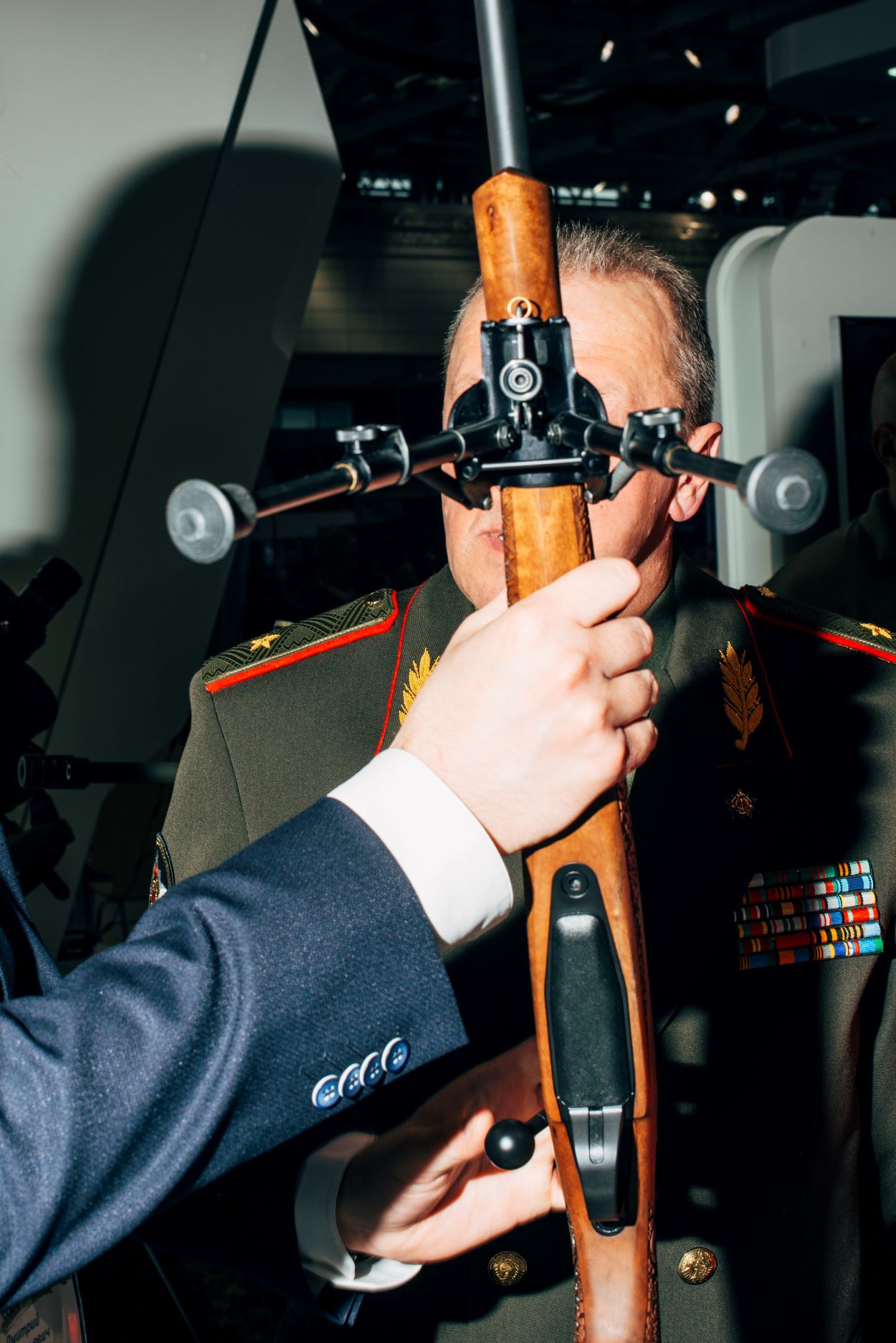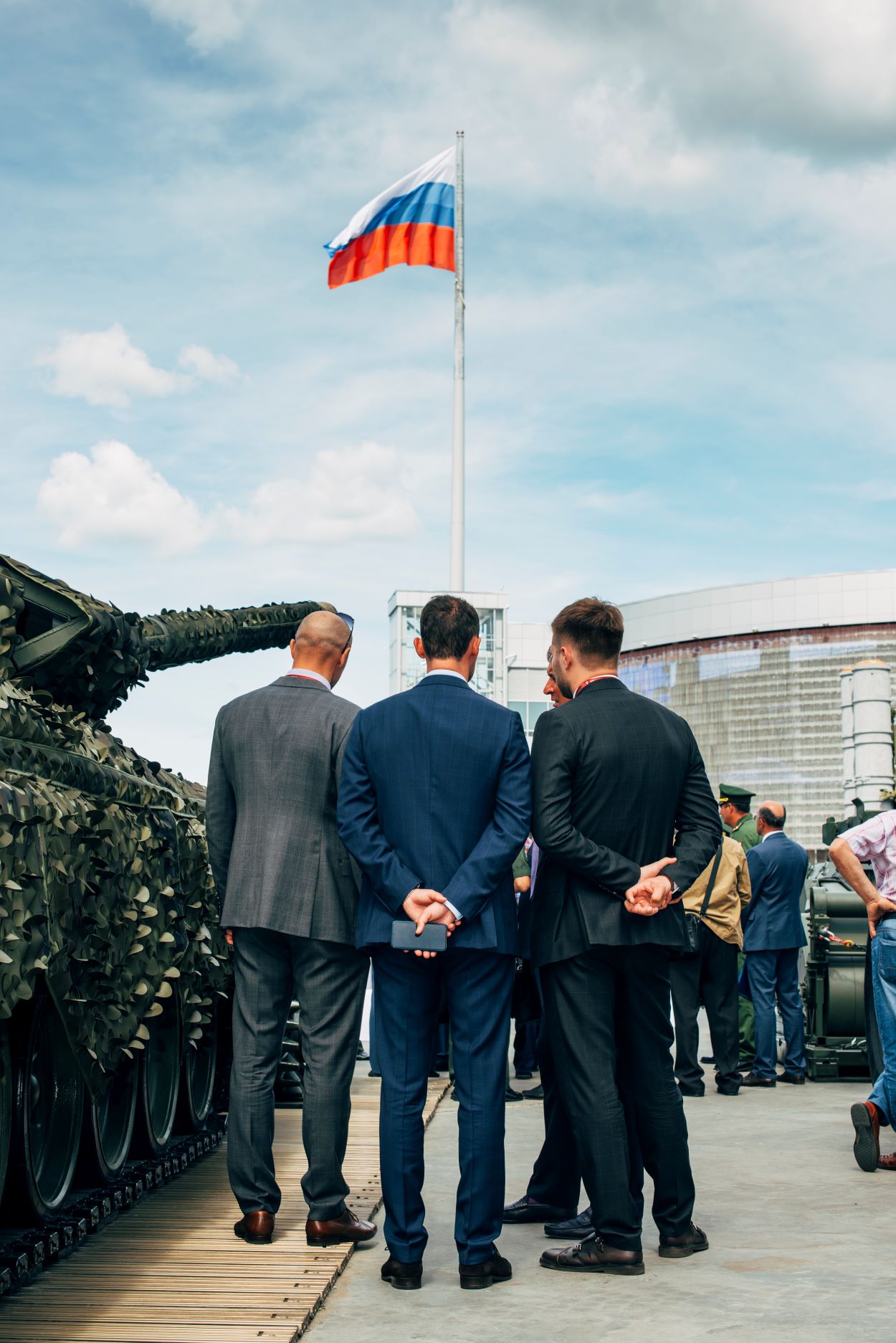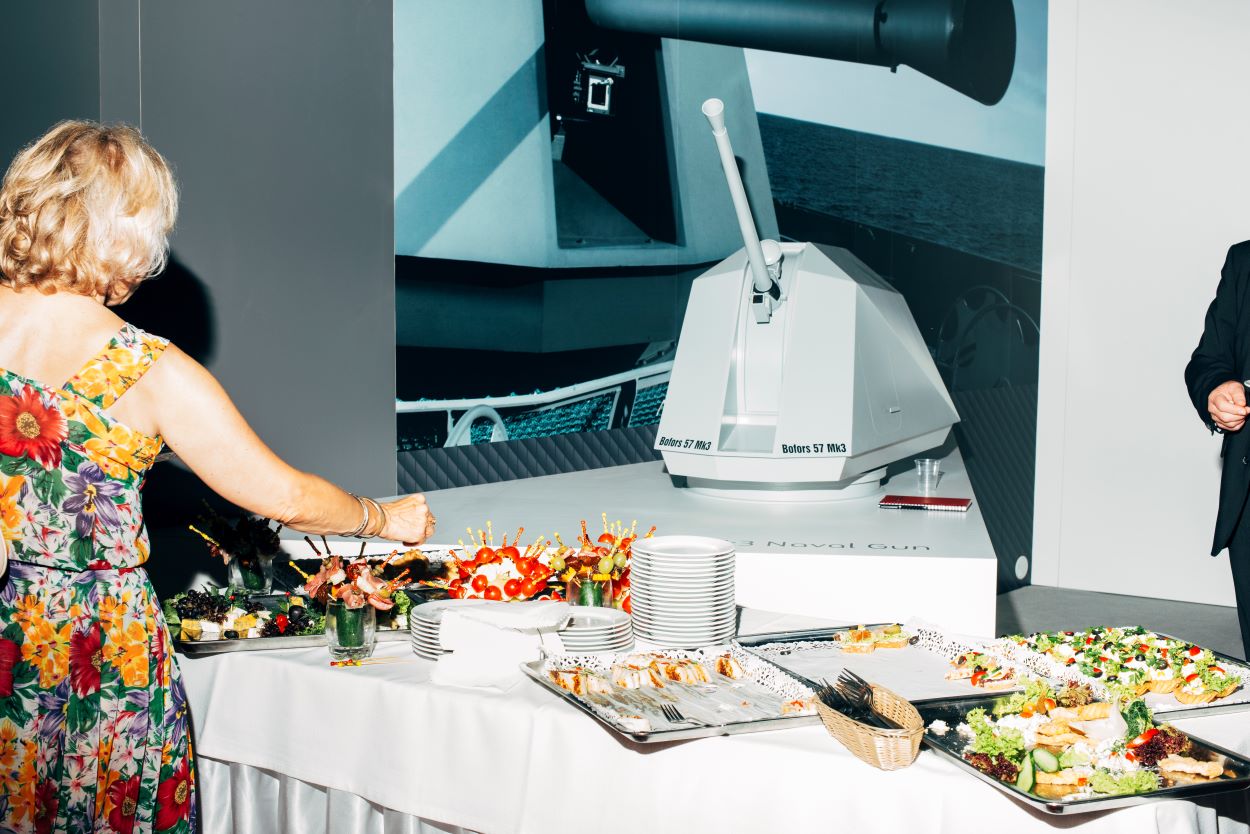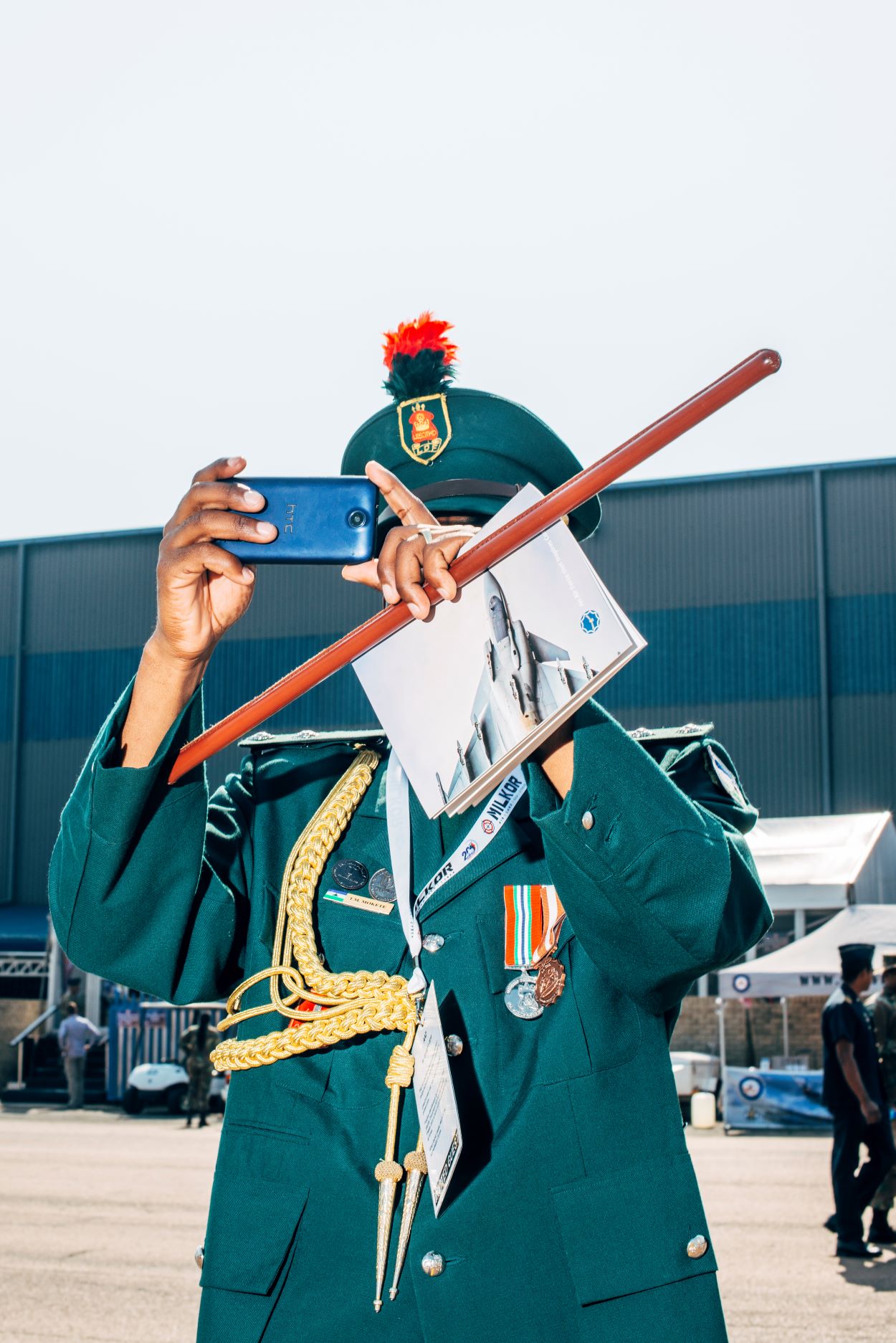All images from the series Nothing Personal – The Back Office of War by Nikita Teryoshin
Shot in arms fairs around the world over the last eight years, Nikita Teryoshin’s Nothing Personal reveals the chilling business of conflict
In a conflict-ridden world, weapons are instruments of both war and politics. In October 2023, the Swedish defence ministry offered its Gripen fighter jets to a western coalition that was considering sending planes to Ukraine, on the condition that Sweden be admitted to Nato. Turkey’s President Erdoğan had previously used his veto over Sweden’s membership, before dropping it in July. He is currently adding new conditions to the talks, indicating he would support Swedish membership once F-16 jets are passed from the US to Turkey.
Before all this, weapons have to be designed, licensed, manufactured and sold – ostensibly to legitimate actors, but also to proxy wars, militias and paramilitaries. Much of the window shopping happens at arms fairs, which Russian-born photographer Nikita Teryoshin has been photographing since 2016. His first visit was to the International Defence Industry Exhibition (MSPO) in Kielce, Poland, while he was still a student at the University of Applied Sciences & Arts in Dortmund. He was met with a reception for military helicopters held by Airbus – champagne and finger food next to killing machines.
“I was thinking, ‘Wow, it’s like the opposite of war – great weather, people are super polite, you get food and drink for free’,” he recalls. Teryoshin has since travelled to at least 17 fairs for Nothing Personal – The Back Office of War, a series of cold, flash-heavy images in which the weapons command more attention than people. The project is now being published by GOST Books. Teryoshin decided not to photograph anyone’s face.
“The way I show this business is through metaphor, because it’s a shadowy business,” he says. It is an outsider’s view, but also “a comment, an essay”, a provocation for viewers to research the industry. “Mixing capitalism and stock markets with the arms trade is one of the worst things that can happen,” he says ruefully.


“Mixing capitalism and stock markets with the arms trade is one of the worst things that can happen”
In 2020, the estimated value of the global arms trade was $112billion, but the conflicts in Ukraine and Israel-Gaza have bolstered sales; German manufacturer Rheinmetall’s share price more than doubled in the two months following the Russian invasion into Ukraine. The UK’s arms exports doubled during 2022 to a record £8.5billion, with Qatar the biggest buyer. Nothing Personal shows the full breadth of the equipment behind these numbers. Tanks, armoured suits, rifles and intelligence devices are shown in prototype or unused form, with an unnerving sterility which matches the attendees’ tailored suits.
Most of all, Teryoshin is attuned to the ways the industry justifies itself – a combination of wilful ignorance, profit-chasing and close ties to the security architecture of superpowers such as the US, China and India. By holding these narratives alongside the realities of today’s wars, dark ironies emerge. Slogans are a straightforward example: Kalashnikov Concern rebranded in 2014 under the slogan ‘Protecting Peace’; ITT Inc uses the line ‘Engineered for Life’. Nothing Personal is about conveying these ironies, exposing not just these closed fairs, but the implications of a world in which militarisation is incentivised. A huge battlefield-inspired cake at the UAE’s Navdex fair in 2019 is the most absurd example of these juxtapositions, while red carpets, copious wine and ornate bouquets feature across the series.
“For people working there, it doesn’t actually matter what they’re selling,” Teryoshin says. “You can sell vacuum cleaners, cars, killing machines, as long as you maintain the idea that what you’re doing is good because it’s for security, fighting against ‘bad guys’.” An earlier project, Hornless Heritage, saw him go behind the scenes in Germany’s dairy industry, where cows are genomically selected and artificially inseminated. Teryoshin sees similarities with the arms fairs in terms of ethical triangulation – millions of people eat meat despite knowing about the extractive and abusive nature of factory farming, and people continue to develop and sell weapons while civilians and soldiers are killed.
“These ironies are coming not just from my point of view, this world is isolated from the public,” Teryoshin says. “People are living in a parallel universe.” Even so, he picks out the fairs’ banality as perhaps their most sinister quality: “For a weapons trader, the best thing is to sell to both sides of the conflict.”

Nikita Teryoshin, Nothing Personal – The Back Office of War is out now (GOST Books)

